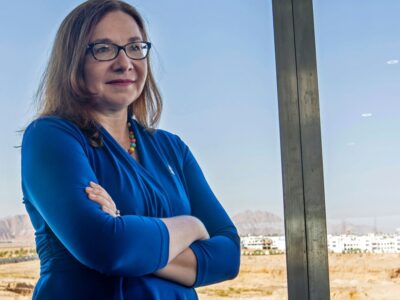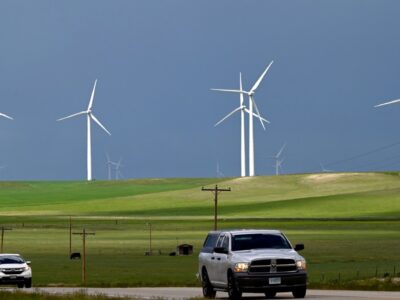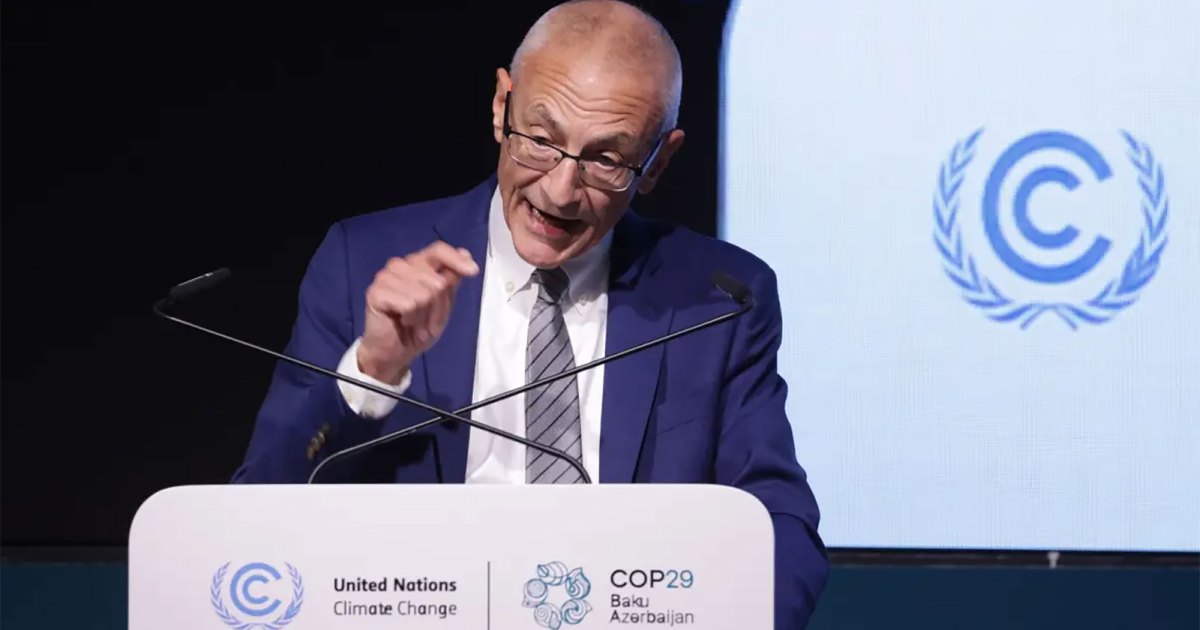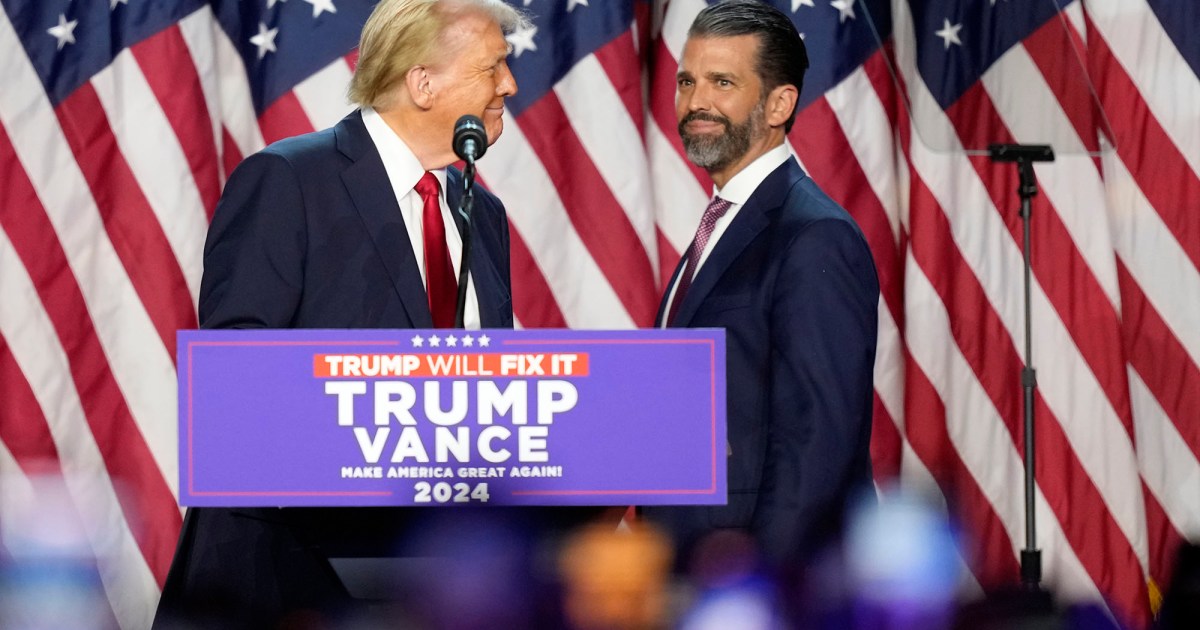
This story was originally published by Grist and is reproduced here as part of the Climate Desk collaboration.
Last month, Eugene became the first city in Oregon to pass an ordinance requiring new residential buildings to be fossil fuel-free. But the policy may never go into effect—not if the natural gas industry gets its way.
Ever since the electrification ordinance passed, a group funded by Oregon’s largest gas utility has been busy collecting petition signatures from Eugene residents in an attempt to rescind it. The group bears the hallmarks of astroturfing—when corporate interests create the illusion of grassroots support for their side of a political debate. If the group can collect 6,460 signatures by March 9—which it says it already has—the ordinance can be moved to a ballot referendum for the public to vote on this November, effectively stopping its scheduled implementation this summer and potentially canceling it for good.
Environmental advocates say the petition represents a cynical new strategy from the fossil fuel industry to not only preempt, but overturn electrification ordinances nationwide. “They’re thinking that if they can roll back climate policy in progressive, dark green Eugene, then they can do it anywhere,” Dylan Plummer, a senior campaign representative for the nonprofit Sierra Club, told Grist. “Our coalition is ready to fight and do whatever it takes…to show that our city supports climate justice and a transition off of fossil fuels.”
Eugene, with a population of roughly 175,000, is just one of more than 90 cities and counties across the United States that have adopted policies to electrify their residential, commercial, or municipal buildings, often as part of an effort to meet emissions reduction targets. Natural gas appliances contribute to climate change—both at the point of combustion in people’s homes and through the extensive leakage of unburned fuel from pipelines, storage facilities, and the appliances themselves.
Gas-powered appliances also come with heavy health risks. Stoves that run on gas, for example, leak cancer-causing benzene, as well as pollutants that contribute to respiratory problems, including nitrogen dioxide and fine particulate matter. Widely reported research published last December found that more than 1 in 10 cases of childhood asthma in the United States can be attributed to the use of gas stoves.
Eugene city councilors discussed these issues at length during a special meeting on February 6—and for many months before then. Under pressure to take concrete action to advance the city’s climate goals, including halving citywide fossil fuel use by 2030, compared to a 2010 baseline, the council eventually passed a policy 5-3 that would require new homes less than four stories high to be built without natural gas hookups.
“We’re building the city that we want to see in the future,” Councilor Lyndsie Leech told her colleagues at the time. The ordinance was signed by Eugene’s mayor shortly after it passed, and city councilors expected it to go into effect in June.
The opposition, however, has been fierce and well-organized. Many gas utilities nationwide have tried to stop local governments from phasing out fossil fuels in buildings by advocating for so-called preemption laws, state-level policies that take away city and county councils’ authority to mandate building electrification.
Others have filed lawsuits challenging statewide climate plans that would require them to reduce their emissions. But environmental advocates say the pushback in Eugene has been particularly zealous. A petition committee called Eugene Residents for Energy Choice is currently collecting thousands of signatures in an effort to walk back the City Council’s already-approved electrification ordinance.
“It’s a very, very aggressive campaign,” said Anne Pernick, a community manager at the environmental nonprofit Stand.earth, which advocates for building electrification in communities nationwide. “We’ve seen state preemptions and local lawsuits…but I can’t find another example of what’s happening in Eugene to overturn something that has passed.”
Eugene Residents for Energy Choice is taking advantage of a petition process that allows ordinances passed by the City Council to be put up for a vote by the public. If a petitioner can collect signatures from 6,460 Eugene residents within 30 days of an ordinance being signed by the mayor, that ordinance can be placed on a ballot referendum and sent to voters on the next election day, so long as it’s more than 90 days away.
Until the election, the ordinance in question can’t be implemented. That means a successful petition would prevent Eugene’s building electrification policy from going into effect this June, as currently planned. Rather, it would be put off at least until the next election in November—and potentially canceled altogether, if voters reject the ballot measure then.
Eugene Residents for Energy Choice says it’s already surpassed the 6,460-signature threshold and is looking to collect even more, as petitioners often do in case some signatures are illegible or deemed invalid by the county clerk’s office. “We have collected nearly 10,000 signatures, and we need your help to gather more before the March 9 deadline!” the group said in an email sent to its mailing list on February 28.
Eugene Residents for Energy Choice describes itself as a “group of local Eugene residents” who are simply trying to put building electrification on the ballot—to “give Eugene residents a voice in this important matter.” But the group appears to be funded in large part by NW Natural, a gas-only utility serving parts of Oregon and Washington with a long history advocating against building electrification. Public records show that NW Natural contributed more than $51,400 to the petition committee just four days after Eugene city councilors passed the electrification policy, followed by another $600,000 less than a week later.
Before then, a similar group called Eugene for Energy Choice—whose web URL now redirects to that of Eugene Residents for Energy Choice—was distributing pamphlets around Eugene with NW Natural’s branding on them, calling itself “a concerned group of workers and organizations” that wanted Eugene residents to “have their say” on building electrification. The other organizations were three building trade unions and two lobbying groups, one for hop growers and one for Oregon’s restaurant and hotel industries.
Environmental advocates say Eugene Residents for Energy Choice, which touts the benefits of natural gas, is a “front group” for NW Natural and its allies, designed to create the illusion of organic grassroots opposition to building electrification. Screenshots provided by the Breach Collective, a Eugene-based climate justice nonprofit, show that a private campaign management services organization, which claimed to be working with NW Natural, spent much of February hiring full- and part-time workers to gather petition signatures in Eugene for up to $35 an hour.
“They’ve just blanketed the city with canvassers, collecting signatures and employing deceptive talking points,” said Plummer, with the Sierra Club. He said he’s seen them at anti-electrification protests outside city hall, too. “A couple of us approached them and said, ‘What’s your deal, are you guys just really into natural gas or what?’ And they said, ‘No, no, no, we’re just paid.’”
The campaign management services company did not respond to Grist’s request for comment, and neither did Eugene Residents for Energy Choice. NW Natural confirmed that it hired the campaign services company to attend a public hearing outside Eugene City Hall, but it said the company’s employees were there to “help direct traffic.” The utility also acknowledged its financial contributions to Eugene Residents for Energy Choice, but it described the group as “a separate entity that has independent decision-making authority.”
Although environmental groups have described the petition as a “first-in-the-nation attempt by the gas industry to roll back local climate policy,” Pernick said it’s nothing new for utilities to pull out all the stops to oppose building electrification. There’s a common “playbook,” she said, with messaging that implies residents could have their gas-powered stoves and heating systems taken away from them at a moment’s notice.
“It can get really illogical,” Pernick told Grist, as if “people are coming to rip out your gas appliances tomorrow.” Most electrification ordinances so far, including Eugene’s, only affect new construction.
Other common talking points hold that natural gas is a necessary part of a climate-safe energy mix, even though it’s a fossil fuel that contributes to climate change. They also say that building electrification will foist burdensome costs onto ratepayers, strain the electric grid, and make the energy system less reliable. With support from trade groups, including the American Gas Association and the American Public Gas Association, gas utilities trot out these arguments whenever natural gas is under threat.
NW natural is no exception; with more than one-third of its estimated gas connections in Eugene and other jurisdictions that are considering electrification policies, the utility has been vocal about the supposed pitfalls of electrification. Recently, it’s come under increased scrutiny for what critics have called “deceptive marketing practices.”
In 2022, lawmakers and environmental organizations called on Oregon’s attorney general to investigate the utility for spending thousands of dollars distributing natural gas-related coloring books to the state’s public schools. And in January, students in Portland planned to protest a NW Natural-sponsored teacher training on natural gas and hydrogen, calling it part of a “broader misinformation campaign” about natural gas. (The training was canceled at the last minute.)
Separately, NW Natural made national headlines this winter for hiring a consultant to give expert testimony during a public hearing in Multnomah County, which overlaps with Portland, over the health hazards of gas stoves. The consultant downplayed the science linking air pollution from gas stoves to respiratory problems in children.
Now, environmental advocates say NW Natural is using Eugene Residents for Energy Choice to whip up controversy over the policy to electrify residential buildings. Pamphlets from the group’s predecessor described the City Council’s ordinance as “‘forced electrification’—a ban on choice,” and multi-page newspaper ads from the group have touted so-called renewable natural gas as a climate-friendly alternative to “costly” electrification requirements. Independent analyses show that it’s almost always cheaper for homeowners when houses are built with electric appliances rather than gas ones.
Eugene Residents for Energy Choice claims on its website that 70 percent of Eugene voters oppose building electrification, based on a 2021 poll paid for by NW Natural. “[W]e believe all Eugene residents should have a voice in choosing what energy system is right for them,” the group’s website reads. A separate poll of Oregon voters conducted by the public policy opinion firm FM3 Research suggests at least 56 percent of Oregon voters support “transitioning from using natural gas in buildings and replacing it with clean, renewable electricity.”
Plummer, with the Sierra Club, thinks Eugene Residents for Energy Choice will almost certainly succeed in moving the City Council’s electrification ordinance to the ballot this November. But his organization, along with several others that supported the ordinance, aims to counter the petition committee with its own public education campaign.
Their efforts include an appeal to the Eugene city attorney requesting changes to the proposed ballot measure so that it more clearly communicates how building electrification is needed to meet Eugene’s goal of halving fossil fuel use by 2030. Hundreds of Eugene students also organized a school strike last Friday, when they marched onto the streets of downtown to demonstrate youth support for the electrification ordinance.
“Our priority is cutting through NW Natural’s misinformation and educating voters about what is going to be on the ballot this fall,” Plummer told Grist. Citing Eugene’s historically progressive and environmental bent, he said, “We’re very confident that if Eugene voters are presented with accurate information, they will vote overwhelmingly to support this ordinance.”















